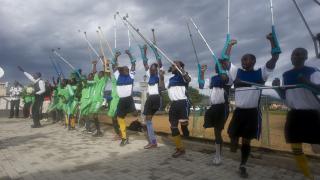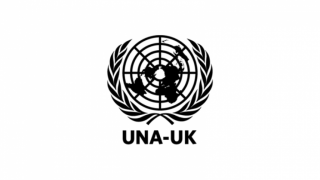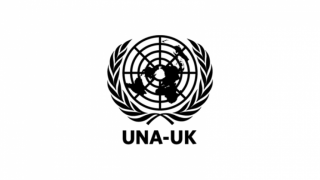
On 5 March, the UN announced a new phase of its operations in Sierra Leone, marking the transition of its political mission to a development-focussed presence. 15 years after it was established, the UN Integrated Peacebuilding Office will formally close.
The UN Country Team, which consists of 19 development funds, programmes and agencies, will take on its residual duties, such as supporting the ongoing constitutional review process.
Speaking in Freetown, UN Secretary-General Ban Ki-moon said "Sierra Leone represents one of the world’s most successful cases of post-conflict recovery, peacekeeping and peacebuilding". He called on other countries to draw hope from the country's “inspiring example".
UNA-UK's Chairman, Sir Jeremy Greenstock, served on the UN Security Council during the final years of Sierra Leone's civil war and headed a Council delegation to the country in 2000. Commenting on the closure of the UN office, he said: "It is marvellous to see Sierra Leone moving to a new stage in its post-conflict development. I will never forget my first visit to the country and the Security Council's role in helping it to tackle the worst period of conflict. This is a people of tremendous character and resilience, whom we all want to see progress to a stable period of peace and prosperity."
Background
From 1991 to 2002, Sierra Leone's civil war left at least 50,000 dead and displaced some two million. Civilians were subjected to marauding armed gangs, conscription of child soldiers and the amputation of limbs as a method of intimidation. After an initial peace accord failed, the UN sent peacekeepers to the country to support the 1999 Lomé Peace Agreement. The following year, some 500 of them were taken hostage and the agreement effectively collapsed. UN troops, with British and Indian forces as the main contingents, launched a successful operation, which was followed by military action by the UK that contributed to the end of the war in 2002.
After the conflict, the Sierra Leonean government collaborated with the UN on a number of activities, including a disarmament, demobilisation and rehabilitation programme, and the creation of a 'Special Court' to try those bearing "the greatest responsibility for the commission of crimes against humanity, war crimes and serious violations of international humanitarian law" since 1996. A truth and reconciliation commission complemented the Court's activities by providing a forum for victims and perpetrators to their their stories. Both began operating within six months of the end of the war.
A UN force remained in the country until 2005, after which it was replaced by the political office which will now also close. During its last year, the office focussed on supporting the constitutional review process, strengthening conflict prevention and resolution processes, and strengthening human rights institutions and the security sector.






